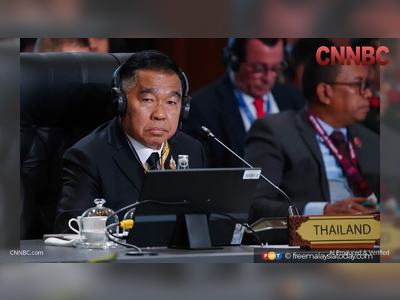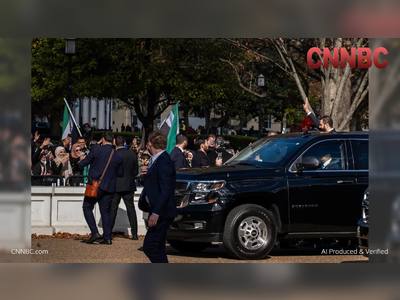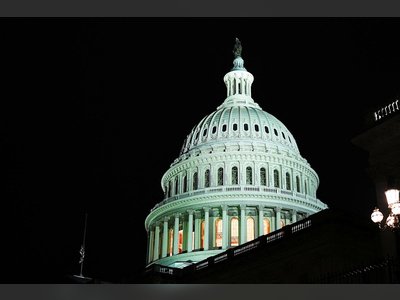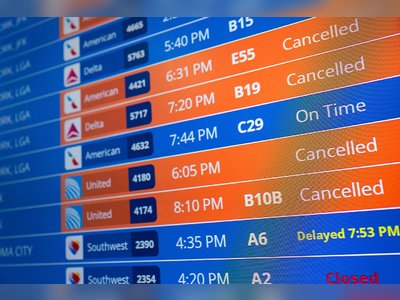Supreme Court Declines to Reopen Same-Sex Marriage Case
Justices refuse to revisit their 2015 ruling, signalling no appetite to overturn same-sex marriage protections
The Supreme Court of the United States on Monday declined to review an appeal challenging its landmark 2015 decision that recognised a constitutional right to same-sex marriage nationwide.
The petition from former Kentucky county clerk Kim Davis, who refused to issue licences to same-sex couples after the ruling, sought both to overturn the precedent and to evade a damages judgment.
The court issued its refusal without comment, signalling that its conservative majority is not prepared at this time to reopen that legal terrain.
The case brought by Davis centred on a damages award of over $360,000 against her for denying marriage licences.
She argued that the Constitution’s First Amendment right to religious exercise shielded her from liability and also pressed the high court to reconsider its prior decision on same-sex marriage.
Though the court’s composition has shifted since 2015—and three of the five justices who supported the original ruling are no longer on the bench—the order list showed no justice dissented from the refusal, underlining broad consensus against reviewing the case now.
Advocates for LGBTQ+ rights hailed the decision as a reaffirmation of marriage equality.
One major rights organisation described the refusal as reinforcing the principle that equal protection applies to all.
At the same time, opponents pledged continued efforts to overturn the precedent, though legal analysts emphasised that the particular case filed lacked a clean vehicle for directly challenging the underlying marriage ruling.
Public opinion remains strongly supportive of same-sex marriage.
Polling shows around seventy per cent of Americans believe such unions should be recognised by law, a factor that many observers say contributes to the court’s caution.
Some of the justices have recognised the importance of reliance interests—millions married and many families built on the assumption that the 2015 decision would stand.
While the refusal leaves intact the core protections of same-sex marriage, it does not close the door on future challenges.
Legal observers say the court may choose a different case at a later date and that parallel issues—such as conversion therapy bans or transgender-athlete rules—continue to move through the judiciary and may eventually reach the bench.
The petition from former Kentucky county clerk Kim Davis, who refused to issue licences to same-sex couples after the ruling, sought both to overturn the precedent and to evade a damages judgment.
The court issued its refusal without comment, signalling that its conservative majority is not prepared at this time to reopen that legal terrain.
The case brought by Davis centred on a damages award of over $360,000 against her for denying marriage licences.
She argued that the Constitution’s First Amendment right to religious exercise shielded her from liability and also pressed the high court to reconsider its prior decision on same-sex marriage.
Though the court’s composition has shifted since 2015—and three of the five justices who supported the original ruling are no longer on the bench—the order list showed no justice dissented from the refusal, underlining broad consensus against reviewing the case now.
Advocates for LGBTQ+ rights hailed the decision as a reaffirmation of marriage equality.
One major rights organisation described the refusal as reinforcing the principle that equal protection applies to all.
At the same time, opponents pledged continued efforts to overturn the precedent, though legal analysts emphasised that the particular case filed lacked a clean vehicle for directly challenging the underlying marriage ruling.
Public opinion remains strongly supportive of same-sex marriage.
Polling shows around seventy per cent of Americans believe such unions should be recognised by law, a factor that many observers say contributes to the court’s caution.
Some of the justices have recognised the importance of reliance interests—millions married and many families built on the assumption that the 2015 decision would stand.
While the refusal leaves intact the core protections of same-sex marriage, it does not close the door on future challenges.
Legal observers say the court may choose a different case at a later date and that parallel issues—such as conversion therapy bans or transgender-athlete rules—continue to move through the judiciary and may eventually reach the bench.











